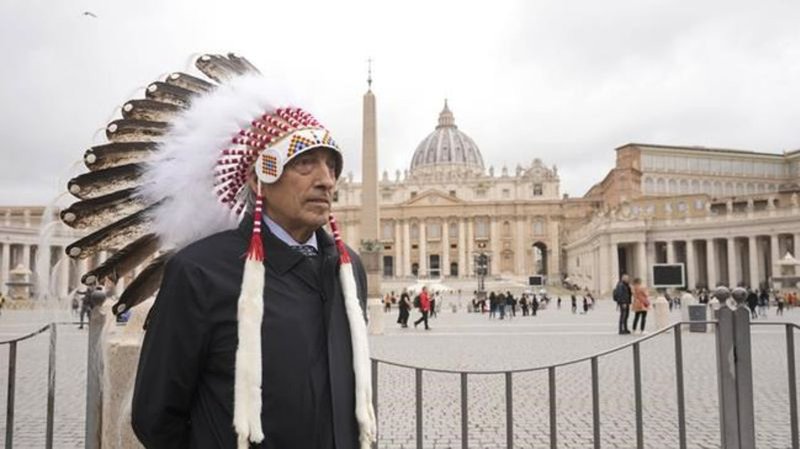
‘Never losing hope:’ Former national chief says apology reflects decades-long fight
ROME — Phil Fontaine says he had hoped a long-sought apology would finally come this week when an Indigenous delegation met with Pope Francis at the Vatican.
But the former national chief says he was still shocked Friday when he heard the pontiff say: “I am very sorry.”
“This moment, I think, reflects … the determination and courage of many that kept up the fight over the years,” Fontaine said in St. Peter’s Square.
“It’s really about never losing hope.”
